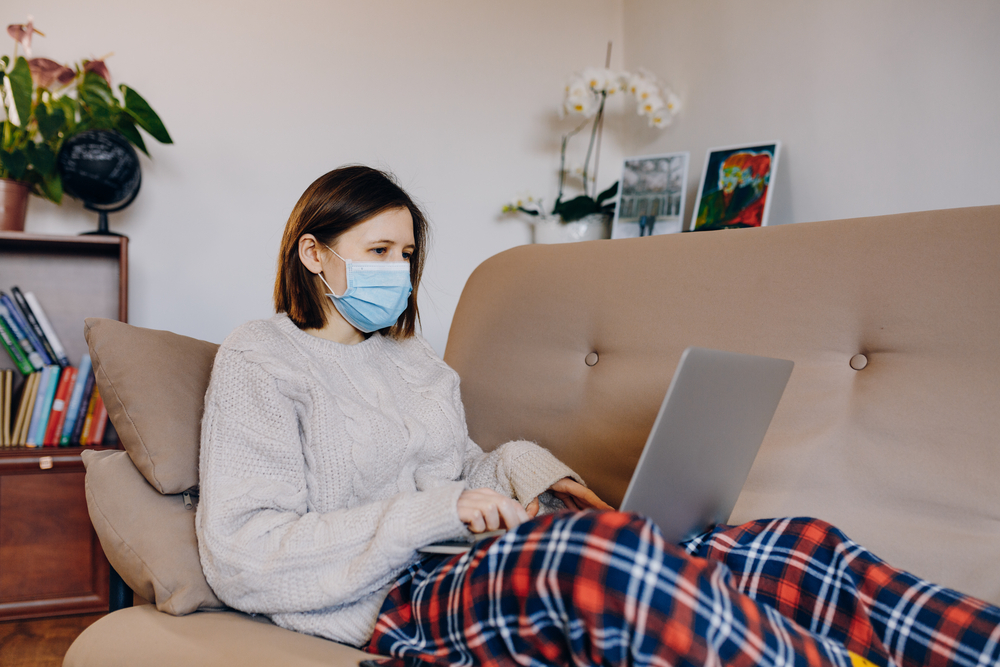Home Care Tips If You Have Symptoms of COVID-19
 The COVID-19 pandemic has impacted countless aspects of our everyday lives, and it seems that information surrounding this virus is constantly changing. With such uncertainty, it’s natural to worry about what you should do if you begin to develop symptoms of COVID-19. This blog will give you some basic tips and recommendations on how to care for yourself, based on current government health guidelines.
The COVID-19 pandemic has impacted countless aspects of our everyday lives, and it seems that information surrounding this virus is constantly changing. With such uncertainty, it’s natural to worry about what you should do if you begin to develop symptoms of COVID-19. This blog will give you some basic tips and recommendations on how to care for yourself, based on current government health guidelines.
Know If You Should Stay Home
First and foremost, it is incredibly important to know when you should stay home and when you need to seek medical care. The majority of individuals with COVID-19 have mild symptoms, including a fever and cough. If these are your only symptoms, you should be able to stay home and care for yourself.
However, if you develop more serious symptoms, you need to seek medical attention immediately. Emergency warning signs for COVID-19 include the following:
- Difficulty breathing
- Persistent chest pain or pressure
- Confusion or disorientation
- Bluish lips or face
If you have any of these symptoms, or notice them in a sick individual you are caring for, call 911 and notify the operator that you (or the patient) may have COVID-19. Put on a cloth face covering before medical personal arrive to help protect them. You should also call for emergency medical assistance if a sick individual you are caring for becomes unresponsive.
Please note that the above is not an all-inclusive list. You should reach out to your doctor if you are every uncertain about your ability to care for yourself during this pandemic. Most doctors and hospitals have hotlines or can do video consultations to determine if you need professional care, so don’t hesitate to use these tools.
Inform Local Health Department
Depending on where you live, your local health authorities may have specific instructions on reporting your symptoms. Look up the guidelines for your area to determine who you need to inform, and whether or not you will need to provide regular check-ins to update them on your status.
You may also want to reach out to your primary care provider to inform them of your symptoms. Let them know your symptoms are currently mild, and you intend to stay home and care for yourself, but that you wished to inform them for your records. They may also want to have this information in case you need care while you’re sick.
Stay as Isolated as Possible
Most people have been practicing social distancing or isolation for some time now. However, if you develop symptoms of COVID-19, isolating yourself becomes even more important—and that means isolating yourself from your family as much as you can. Try staying in a single room of your house and keep all family members, including your pets, out of the room.
Have food and other necessities left outside your door. When passing dishes or other items back out of your room, ensure they are sanitized before anyone else handles them, or ensure the family member caring for you uses gloves to handle those items. Use a separate bathroom, if available, and if you must be around other members of your household, please wear a face covering.
And, of course, please do not leave your home unless it is for essential medical care.
Care for Yourself
Self-care for COVID-19 primarily involves plenty of rest and hydration. So, ensure you have plenty of water, and don’t be afraid to stay in bed for most of the day. Make your recovery space as comfortable as possible for yourself, so you’re less tempted to leave the room. We recommend items like wedge-shaped pillows to help prop you up in bed during the day, and an over-bed table or lap tray for eating and doing other activities like puzzles, drawing, and crosswords.
If you’re taking any pain killers to treat your symptoms, you may have heard that you should avoid ibuprofen, as it could worsen conditions. While this was reported by certain French officials, their preliminary report has not been backed by any new findings, and the World Health Organization has stated that they are not recommending against the use of ibuprofen to treat COVID-19 symptoms. However, if you are concerned, acetaminophen or paracetamol are good alternatives.
Monitor Your Symptoms
Continue monitoring your symptoms on a regular basis. We recommend keeping a written journal of your symptoms, taking your temperature and writing down your general state of well-being multiple times a day. Pay particular attention to any new symptoms you may have. This is a good way for you to track your recovery progress, and if you end up needing medical care, it is good information for your care provider to have on hand.
If you have COVID-19 symptoms, please take proper steps to care for yourself while protecting those around you. If you need any medical supplies or comfort items as you recover, please give us a call to ask about our curbside pick-up and delivery options.